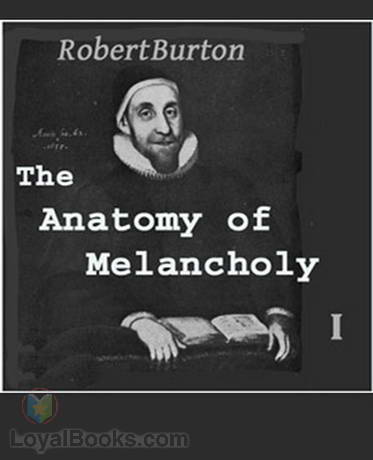The Anatomy of Melancholy |
|---|

In "The Anatomy of Melancholy," Robert Burton dives deep into the complex nature of melancholy, exploring psychological, philosophical, and medical perspectives on this all-encompassing emotion.
Burton's writing is dense and intricate, drawing on a wide range of sources to dissect the many facets of melancholy. From historical anecdotes to literary references, he weaves together a comprehensive understanding of how this emotion affects individuals and society as a whole.
One of the most compelling aspects of the book is Burton's ability to create a sense of universality in his exploration of melancholy. He delves into the personal experiences of individuals, while also highlighting the broader cultural and societal implications of this emotion. In doing so, he sheds light on the pervasive nature of melancholy and its impact on human behavior and thought.
While the book may be overwhelming at times due to its extensive scope and detailed analysis, Burton's insightful observations and eloquent prose make it a worthwhile read for anyone interested in delving deeper into the complexities of melancholy.
Overall, "The Anatomy of Melancholy" is a thought-provoking and enlightening exploration of one of the most enigmatic emotions, offering readers a profound insight into the human experience. Book Description: The Anatomy of Melancholy is a book by Robert Burton, first published in 1621. On its surface, the book is a medical textbook in which Burton applies his large and varied learning in the scholastic manner to the subject of melancholia (which includes what is now termed clinical depression). |
| Book sections | ||
|---|---|---|
| Genres for this book |
|---|
| Literature |
| Instruction |
| Poetry |
| Psychology |
| Non-fiction |
| Links related to this book |
|---|
| Wikipedia - The Anatomy of Melancholy |
| Wikipedia - Robert Burton |
| eBook Downloads | |
|---|---|
|
ePUB eBook • iBooks for iPhone and iPad • Nook • Sony Reader |
Kindle eBook • Mobi file format for Kindle |
|
Read eBook • Load eBook in browser |
Text File eBook • Computers • Windows • Mac |
| Review this book |
|---|